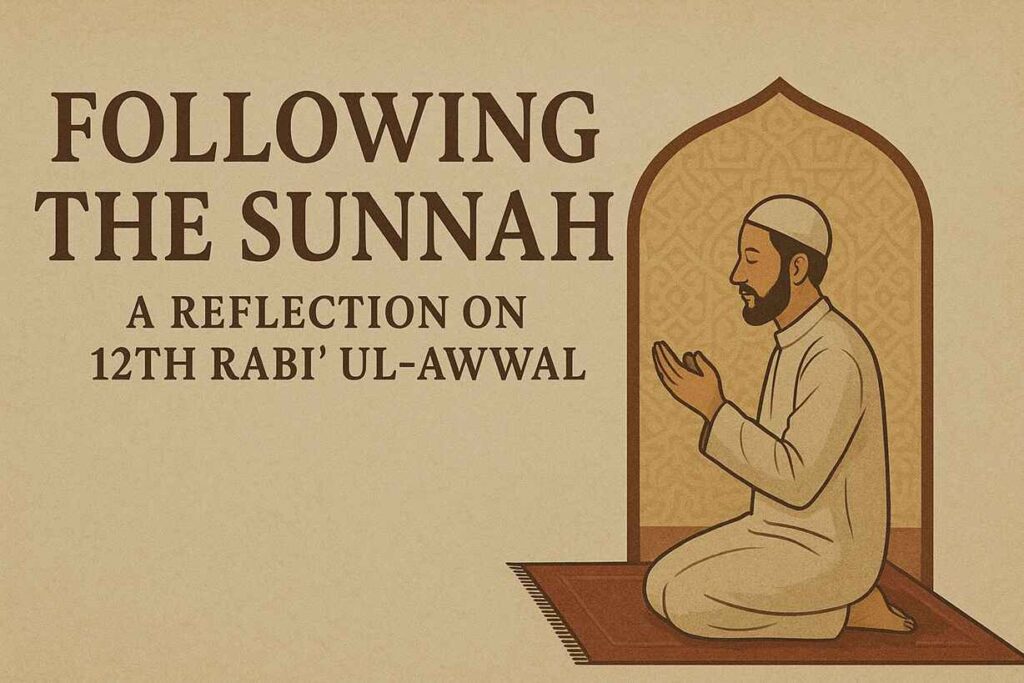Following the Sunnah:
A Reflection on 12th Rabi’ ul-Awwal
The years 570–571 CE, known as ʿĀmul Fīl (the Year of the Elephant), hold great significance in Islamic history. The name comes from the well-known incident of Abraha, whose army—along with its elephants—was destroyed by birds sent by Allah, as described in Sūrah al-Fīl in the Qur’an. In the same year, during the month of Rabiʿ al-Awwal, Prophet Muhammad (peace be upon him) was born into the respected clan of Banu Hashim. This moment made the year even more momentous, as he later became Khatam an-Nabiyyīn (the Seal of the Prophets), the final messenger of Allah.
Rabiʿ al-Awwal is regarded as a sacred month by Muslims, as it marks the blessed birth of the Prophet. He was sent as a mercy to all mankind (Rahmatul-lil-Alameen), a light that dispelled the darkness of ignorance. His mission was not about rituals alone, but about transformation—guiding people to worship Allah alone, to live with integrity, and to show mercy to all of creation. While celebrating his birth is common and acceptable, the deeper question remains: how should it be celebrated?
The true way to honor him lies not in outward festivities alone, but in striving to live as he lived—embodying his wisdom, compassion, and sincerity, just as he brought about a remarkable revolution within only twenty three years of his prophethood.
The revolution he brought was unlike any other in human history. While other revolutions were often limited, temporary, or confined to the transfer of power from one group to another, the Prophet’s revolution was all-encompassing, transforming both the inner and outer lives of people. Through his message, he not only changed systems of governance and social order but also reformed hearts, character, and values. His guidance established justice, compassion, and the worship of Allah alone, making his revolution a complete blessing for all humanity.
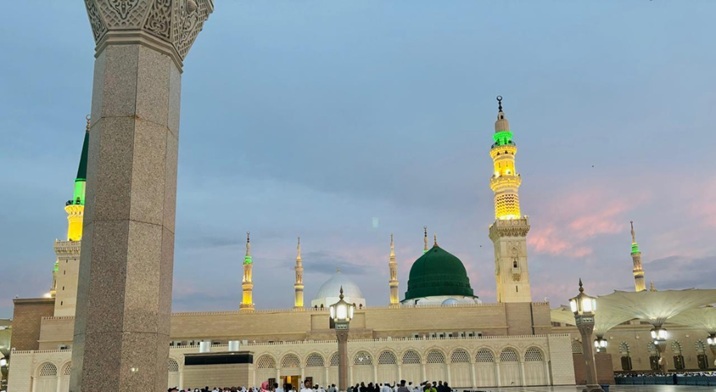
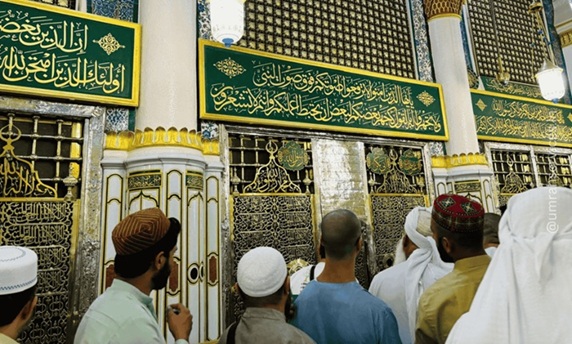
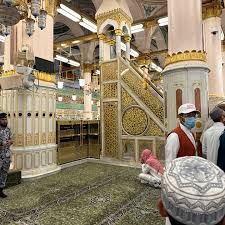
The Danger of Bid’ah (Innovation in Religion)
Sadly, many of the practices we see today on 12th Rabi’ ul-Awwal—such as cake cutting, street processions, lavish decorations, and excessive spending—are regarded by numerous Islamic scholars as acts of bid’ah (innovation in religion). One of the Prophet’s most serious warnings was against bid’ah. He (P.B.U.H) said in a hadith reported in Sunan Abu Dawood:
“The most evil of affairs are the newly invented ones; and every newly invented matter is an innovation (bid’ah), and every innovation is misguidance.”
Regrettably, in remembering and honoring the noblest of mankind, we often resort to practices like cake cutting, noisy processions, or extravagant displays—things that were never part of his Sunnah. Instead of bringing us closer to the Prophet’s true message, such customs risk taking us further away from it.
The Prophet’s way was clear: sincerity in worship, truth in speech, kindness to others, and steadfastness in prayer. He warned us not to exaggerate our love for him through rituals, but to prove it through obedience to Allah and adherence to his Sunnah.

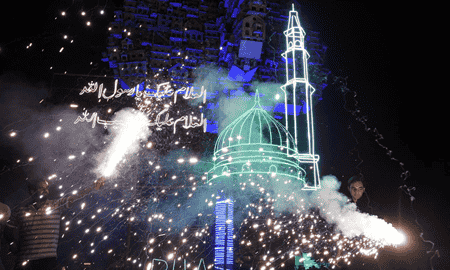

How the Companions Honored the Prophet (P.B.U.H)
The Companions (RA), despite their immense love for the Prophet (P.B.U.H), never celebrated his birth or passing with processions or festivals. Instead, they honored him by following his Sunnah in every aspect of life—through honesty, justice, sacrifice, and obedience. Their love was not seasonal but daily and lifelong. This is the model we must adopt.
How to Truly Celebrate 12th Rabi’ ul-Awwal
The greatest way to honor the birth of the noblest of all mankind, Prophet Muhammad (P.B.U.H), is not through outward rituals, but by living as he lived—making his Sunnah the standard in every walk of life. To celebrate him means to do what he did: to uphold justice, to stand against oppression, to build a society on compassion and equality, and to perfect our individual character.
Here are ways to celebrate his legacy in the light of Qur’an and Sunnah:
- Hold Fast to the Qur’an: It is the Prophet’s greatest legacy. By reciting and reflecting on it, we carry his mission forward.
- Send Salawat (Durood): As commanded in Qur’an 33:56, sending blessings on him increases love in the heart and strengthens our bond with him.
- Give Charity: Instead of wasteful displays, spend on the poor, widows, orphans, and the needy—reflecting the Prophet’s mercy and social justice.
- Uphold Justice and Integrity: In trade, promises, and dealings, honesty must prevail. The Prophet transformed society by rooting out corruption and injustice.
- Strengthen Brotherhood: Visit the sick, reconcile with others, and show kindness to relatives and neighbors—the Prophet built a society on unity and care.
- Fast on Mondays: The Prophet said: “It is the day on which I was born, and the day on which I was sent revelation” (Sahih Muslim). This is his Sunnah.
- Study His Seerah: Learn his struggles, sacrifices, and leadership that turned an age of ignorance into a society of light.
- Work on Character: He said, “I was sent to perfect good character.” Truthfulness, humility, patience, and forgiveness are the true ways of honoring him.
A Call to Reflection
The Prophet’s revolution was not limited to rituals—it transformed individuals, families, and entire societies. To commemorate him, we must reflect: Are we living by his justice? Are we truthful in our words, honest in our trade, merciful to the weak, and responsible as a community?
True celebration of 12th Rabi’ ul-Awwal is not found in cakes, lights, or processions—it is found in carrying his message into every aspect of our lives. By doing so, we not only remember him once a year, but we honor him every single day as Rahmatul-lil-‘Alameen—a mercy for all mankind.
The 12th of Rabi’ ul-Awwal is not a festival; it is a day of remembrance and responsibility. Are we living by the Prophet’s example? Do we uphold his Sunnah in our homes, businesses, and communities? Or have we replaced his guidance with rituals that serve culture more than faith?
Sadly, in our society, we often neglect the very teachings he emphasized: truthfulness, honesty in trade, keeping promises, and rejecting corruption. These values are the real Sunnah. Our beloved Prophet (P.B.U.H) does not need processions, decorations, or songs in his honor. What he needs is for us to live by his message.
True love is not found in empty rituals—it is found in daily obedience, mercy, and sincerity. So let us not ask, “What can we celebrate on 12th Rabi’ ul-Awwal?” but instead ask, “How can I live more like the Prophet every day?” That is the true way to honor him—not just once a year, but throughout our lives.

